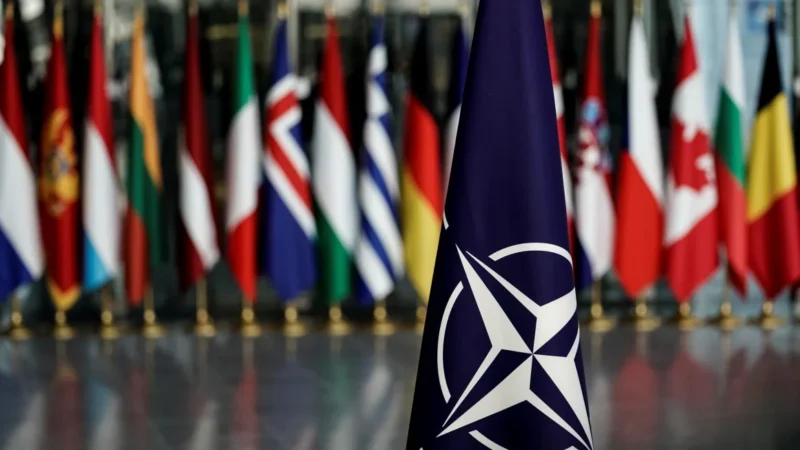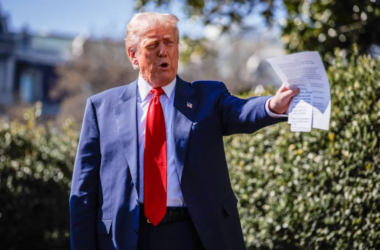Several German politicians have sharply criticized US President-elect Donald Trump’s recent call for NATO’s European members to increase their defense spending to 5% of GDP, a figure that is more than double the current target.
In remarks made on Tuesday evening, Trump complained that NATO countries were not contributing enough to defense spending, stating, “Europe is in for a tiny fraction of the money that we’re in.” He argued that NATO members could afford to spend more, insisting, “They can all afford it, but they should be at 5% not 2%,” during a press conference at his Mar-a-Lago residence in Florida.
Currently, no NATO member spends 5% of its GDP on defense. According to NATO data, Poland is the highest spender at 4.12%, followed by Estonia at 3.43%, and the US at 3.38%.
Ralf Stegner, a member of Germany’s Social Democrat Party (SPD), called Trump’s proposal “delusional and absolutely insane” on Facebook, stating, “We don’t need more weapons in the world, but fewer.”
Marcus Faber, the chairman of the German defense committee in parliament, agreed that a 5% target was unrealistic. He suggested that NATO members should aim for a target above the current 2%, proposing 3% as a reasonable consensus goal.
Marie-Agnes Strack-Zimmerman, a politician from the Free Democratic Party (FDP), also rejected Trump’s suggestion, saying, “We are not at a bazaar here.” She criticized Trump for using such an arbitrary figure, claiming his push for higher spending was likely aimed at benefiting US industry, saying, “Trump, who sees himself as a dealmaker, naturally also hopes that the increased financial commitment of the European partners will benefit US industry in particular. But please don’t make up a number out of thin air.”
Trump’s demand for increased defense spending is not new. During his previous presidency, he frequently threatened to pull the US out of NATO unless European allies boosted their defense contributions. NATO has projected that 23 of its 32 members, including 16 EU countries, will meet the 2% GDP target by 2024, up from just six countries in 2021. However, Italy, Belgium, and Spain are among the nations still below this threshold.
Germany, which will hit the 2% target for the first time this year, has committed to a comprehensive military overhaul following Chancellor Olaf Scholz’s 2022 pledge to significantly boost defense spending. Despite this, reports have suggested that Germany’s military readiness is still lacking, with a 2024 parliamentary report noting that the Bundeswehr remains “aged and shrinking” and in desperate need of equipment and personnel.




